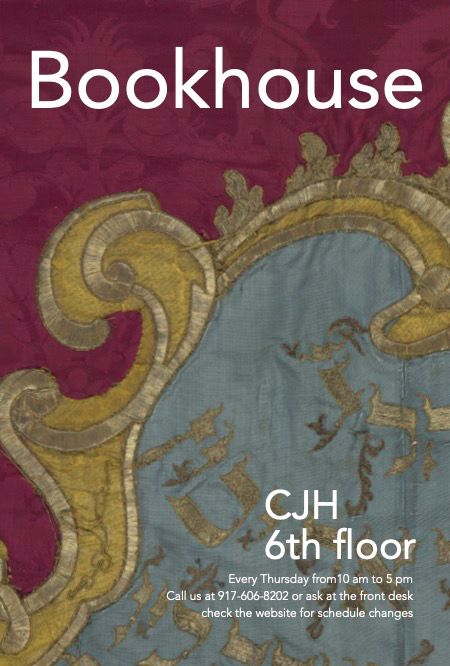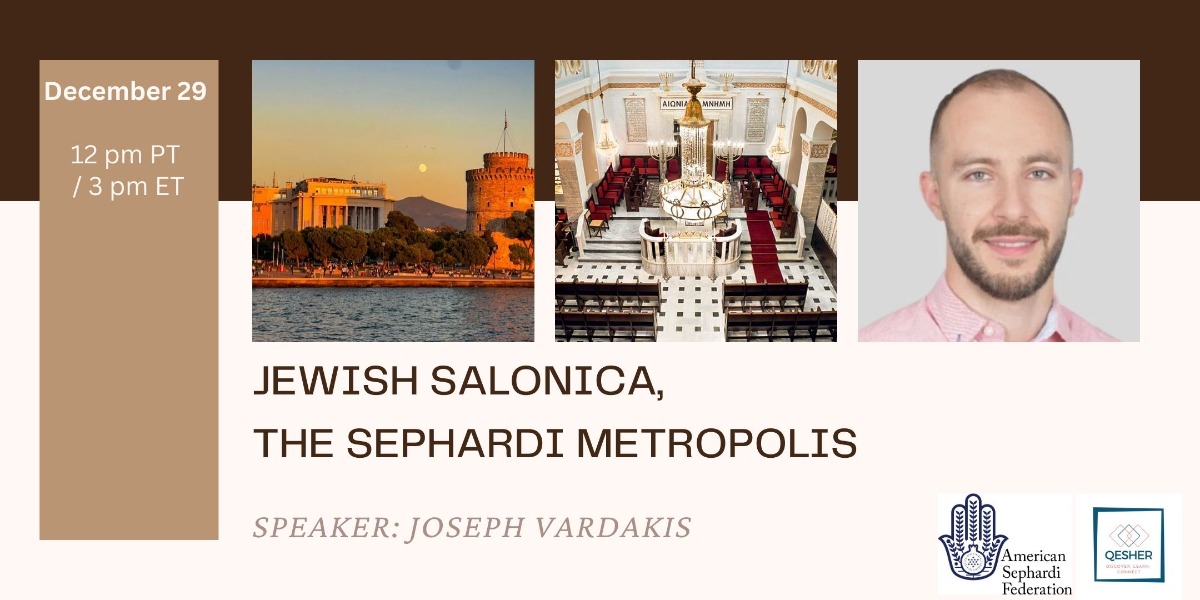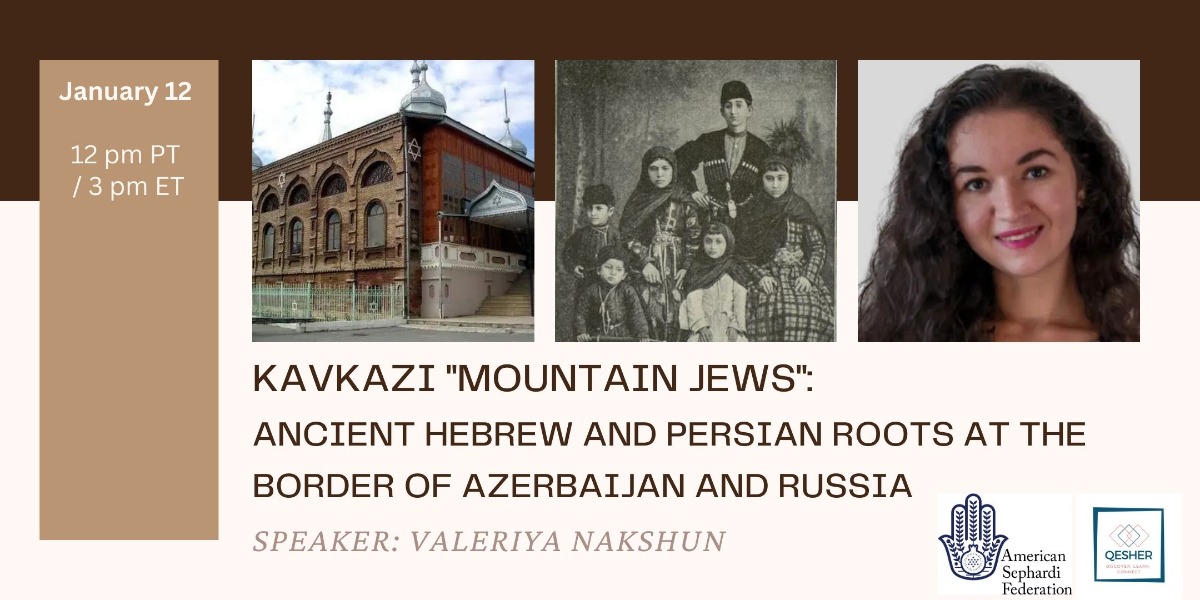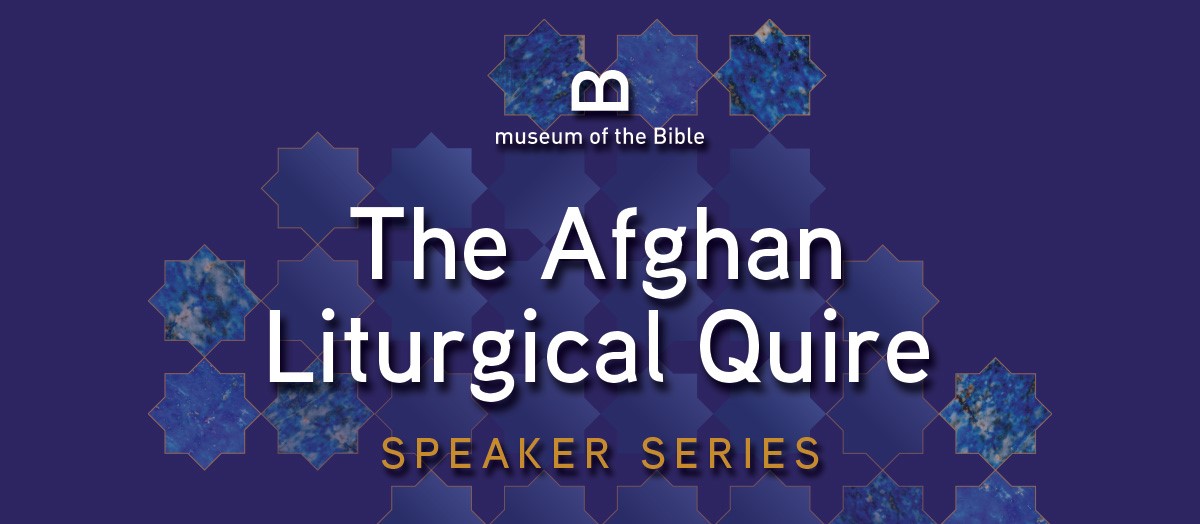A Sephardi Sage on Hanukkah & Honeycombs
& Honeycombs

!חנוכה שמח
Happy Hanukkah from your friends at
The American Sephardi Federation
In honor of Hanukkah, the ASF’s Sephardi World Weekly is pleased to present the following “Letter from the Land of Israel”:
The Sephardi philosopher and communal leader, Rabbi Yosef Albo (1380-1444), is one of the great figures of Jewish intellectual history, and his four-part work, Sefer HaIkarim (“The Book of Roots”), remains a classic of Jewish thought. Albo’s work is particularly relevant during the holiday of Hanukkah, when we celebrate the Jewish victory over the Greek occupiers. There was also a tragic side to the conflict, as Jews fought other Jews. In fact, according to the Chief Sephardi Rabbi of Tel Aviv, R’Hayyim David HaLevy (1924-1988), there’s no commandment to celebrate a festive meal on Hanukkah because of the Jewish Civil War at the time of the Maccabean revolt. In this context, it’s worthwhile exploring one of the central intentions of R’Albo’s Sefer HaIkarim: cultivating Jewish unity.
On the surface, Sefer HaIkarim is a response to Maimonides’ enumeration of thirteen principles of the Jewish Faith. Against Maimonides (1135-1205), Albo argues that there are three principles in Judaism, not thirteen: God’s existence, reward and punishment, and the Divine revelation of the Torah.
On a deeper level, however, in Sefer HaIkarim Albo attempts to temper extremist tendencies within Judaism. Albo argues that there is authentic religious value to worship that doesn’t meet the exacting standards of stringent interpretations of Jewish Law. One of the problems with stringent interpretations of Judaism is that it demoralizes those for whom such stringencies aren’t fitting. As the Moroccan sage, R’Raphael Bardugo (1747-1822), warned three centuries after Albo:
Don’t forbid more than what the Torah forbids… the Torah’s stringencies and the stringencies agreed upon by the sages of the Talmud are sufficient… but our Ashkenazi teachers increased and exaggerated stringencies… it’s clear that God doesn’t desire that we forbid what He permits, for this makes the yoke of Torah excessively heavy and causes it to be cast off, God forbid. But the text teaches, ‘It’s paths are the paths of peace’ (Proverbs, 3:17) (Misamchei Lev, Kohelet)
Albo illustrates his more expansive vision of Judaism through a beautiful metaphor that he introduces in the beginning of his book. Bees, he begins, naturally know to construct their honeycombs with six-sided hexagons. Why, Albo wonders, didn’t God create bees with the knowledge to make their hives with circles? After all, circles constitute the “perfect form,” an idea that dates back to the ancient world and that was widely held among Sephardi sages during the medieval period.
The problem, Albo continues, is that building with circles will leave gaps, or dead spaces, in the honeycomb. When circles rub up against each other, there will always be empty spaces in the corners between the circles.
Theoretically, notes Albo, you could solve the problem of gaps by building with squares. Squares will fill a surface and not leave any space between them. All of the space will be covered. Squares, however, are far from the perfection of circles.
So what is the virtue of six-sided hexagons? On the one hand, hexagons more closely approach the perfection of circles than squares. One the other hand, hexagons, like squares, leave no gaps in the hive.
The object of the metaphor should be clear: Judaism that insists upon excessive stringencies is like a honeycomb built with circles. While those circles will be complete, in and of themselves, they will leave many dead spaces between them. In other words, there will be no place for Jews who don’t act according to these stringencies. On the other hand, Judaism that is willing to build a honeycomb with squares constitutes too much of a compromise.
In Albo’s metaphor, Judaism should resemble a honeycomb constructed with hexagons. Approaching the perfection of the circle, hexagons ensure that no dead spaces, i.e., no Jews, are left behind. Judaism, a way of life intended for an entire people, should strive to bring as many Jews as close to perfection as possible.
Albo’s vision beautifully captures the animating spirit of Classic Sephardi Judaism, and it’s only fitting to remember this message during the holiday of Hanukkah. After all, the precious cruse of oil that stands for the heart of the Jewish tradition needs to be preserved for the Jewish people as a whole. In our time of religious extremism, on the one hand, and full-fledged assimilation on the other, the classic Sephardi way of balancing openness with excellence remains as relevant as it was during Albo’s lifetime.
The ASF wishes our readers a Hanukkah filled with light and imbued with the enlightened teachings of R’ Yosef Albo in Sefer HaIkarim.
The American Sephardi Federation

~~~~~~~
Together, we can go from strength to strength in the New Year!

For more information about sponsorship opportunities: email or leave a message at 212.294.8350. To donate by mail, please send a check payable to “American Sephardi Federation,” 15 W 16th St., New York, NY, 10011
Email us at info@americansephardi.org if you are interested in discussing donating securities or planned giving options with a financial professional from AllianceBernstein.
~~~~~~~
Photo credit: “Hanukia-Majestic Light” Hanukkah Lamp (1983) by Oded Halahmy (From the collection of The Jewish Museum) superimposed over a honeycomb.
~~~~~~~
American Sephardi Federation, Centro Primo Levi, and Dan Wyman Books present:
Bookhouse Thursdays
Bookhouse is a small place about books on the sixth floor of a Chelsea library building.
Take the elevator and discover cozy rooms softly illuminated and infused with music, filled with books and carpets, a samovar from Izmir, porcelain tea cups made in the DDR, and all sorts of lovely obsolete items abandoned and found in the streets of New York.
Come and browse, study, have a conversation, sip a sweet chai, and watch a film. You can purchase books from Dan Wyman’s inventory, check out his rotating showcase, learn about CPL Editions (books we make here at Bookhouse), and explore the Sephardic House bookstore.
Bookhouse brings together book lovers, makers, sellers, readers, writers, and different ways to think and understand books.
If you have a book story to tell, you are welcome to share it at Bookhouse.

Next on Thursday, 2 January, 10:00- 5:00PM
Ask for Bookhouse at the door, we’ll meet you there and bring you up.
Reservations: rsvp@primolevicenter.org or Call us at 917-606-8202
@The Bookhouse
ASF-Center for Jewish History
15 W 16th Street, NYC
The Bookhouse, a project of The American Sephardi Federation (ASF), Centro Primo Levi (CPL) and Dan Wyman Books, is a small space for study, discussion, and creativity connected to Jewish book culture: from manuscripts to pulps, from Talmud to Yiddish Socialism, from Printers to Bookshops to Readers.
Dan Wyman Books will be exhibiting a rotating collection of approximately 300 rare and important books related to these topics, all of which will be available for browsing and purchase.
~~~~~~~
Upcoming Events or Opportunities
Our friends at Qesher present:
Jewish Salonica, the Sephardi Metropolis
“As Sephardi Jews settled in the Ottoman Empire, Salonica (Thessaloniki, now Greece’s second-largest city)—grew into a vital center of Jewish life and culture, earning titles such as ‘Madre de Israel’ (‘Mother of Israel’) and the “Jerusalem of the Balkans.” For over 400 years, it was the largest Sephardi city in the world and the heart of Sephardi Jewry in Europe, offering refuge to persecuted Jews from across Europe and the Mediterranean.
This vibrant city became one of the great centers of the Diaspora, developing a unique cultural heritage that remains significant today. We will trace the history of this remarkable Jewish community from its origins to the present, exploring the rich traditions and distinctive qualities that made Salonica an indispensable chapter in the story of the Jewish people.”
Sunday, 29 December at 3:00PM EDT
Sign-up Now!
Tickets: $9-$18

About the speaker:
Joseph Michael Vardakis was born in Athens, Greece. He has a B.A in Psychology, an M.A in Psychobiology and is currently completing his M.Sc in Clinical Psychology. He has lived and studied in the UK, South Africa and Israel and is currently residing in Athens. He has been a student counsellor for the Ministry of Absorption for new immigrants to Israel and has also worked in an educational framework for the Jewish community in South Africa before his studies. On his spare time, he offers themed tours in Athens, including sites of Jewish interest.
~~~~~~~
Our friends at Qesher present:
Kavkazi “Mountain Jews”: Ancient Hebrew and Persian roots at the border of Azerbaijan and Russia
This talk will feature an overview of Kavkazi Jewish origins, history, and the efforts of the diaspora to preserve their heritage today.
Sunday, 12 January at 3:00PM EDT
Sign-up Now!
Tickets: $9-$18

About the talk:
“The Jewish community of the Caucasus, the mountainous region between the Black and Caspian Seas, is known by many names. The term ‘Kavkazi,’ derived from the Russian word for Caucasus, and ‘Mountain Jews’ have been used interchangeably. Traditionally, however, this community has called themselves ‘Juhuro,’ meaning ‘Jews’ in their ancestral language Juhuri, a Judeo-Persian dialect.
Kavkazi Jews primarily lived in Azerbaijan and the Russian Republics of the North Caucasus—Dagestan, Chechnya, Kabardino-Balkaria, and Karachay-Cherkessia. Their history dates back to the Babylonian Exile of the Jews in 586 BCE and their subsequent integration into the Persian Empire after its conquest of Babylonia. Over time, some Jewish communities migrated north into the Caucasus mountains, where they established settlements.
These communities remained under Persian cultural and political influence until the early 19th century, when the Treaty of Gulistan (1813) and Treaty of Turkmenchay (1828) transferred control of the Caucasus to Tsarist Russia. Later, the region was fully incorporated into the Soviet Union following the Bolshevik Revolution and the Russian Civil War.”
About the speaker:
Valeriya Nakshun is a Kavkazi Jewish culture writer, community organizer, and marketer based between Baltimore and Washington, DC. Born in the Republic of Dagestan, a constituent republic of Russia, she immigrated with her family to the United States as a refugee in the late 1990s. She serves as a Community Outreach Fellow at Sephardic Heritage International DC (SHIN-DC), an organization dedicated to preserving and promoting Sephardic and broader Jewish heritage.
She previously performed as a company dancer with the Silk Road Dance Company (SRDC), where she specialized in traditional dances from Silk Road cultures. As part of her work with SRDC, she has performed at the Embassies of Azerbaijan, Georgia, and Tajikistan, as well as at the Japanese Ambassador’s Residence.
Valeriya also founded the ‘Kavkazi Jewish History and Culture’ Facebook group, which aims to explore and share resources about Kavkazi-Mountain Jewish heritage while fostering connections across the diaspora. She graduated from the University of Maryland Baltimore County (UMBC) with a Bachelor of Arts in Media and Communication Studies and Art History.
~~~~~~~
The Museum of the Bible presents:
The Afghan Liturgical Quire Speaker Series – Jewish History in Afghanistan
Join us to learn more about Afghanistan’s ancient Jewish community and its heritage and customs. Nestled on the Silk Roads, the Jews of Afghanistan lived in this mountainous land for as many as 2,700 years. Throughout its history, this small community’s livelihood was based on long-distance trade. Unusual domestic patterns developed to allow for long periods of time when men were away and women maintained households on their own. Influenced by the many peoples who surrounded them, Afghan Jews preserved their own distinct traditions and way of life.
This discussion will be led by ASF Board Member Osnat Gad, an Afghan Jewish community leader who has worked to preserve Jewish holy sites in Kabul and Herat, Dr. Sara Koplik, author of A Political and Economic History of the Jews of Afghanistan, and Jason Guberman, Executive Director of the American Sephardi Federation.

Sunday, 12 January at 3:30PM
Sign-up in-person!
Tickets: $24.99-$29.99
Sign-up on Zoom!
Tickets: $4.99-$9.99
These lectures will be held at the museum and on Zoom. Tickets for the event include general admission to the museum for those who want to see the Afghan Liturgical Quire on exhibit.